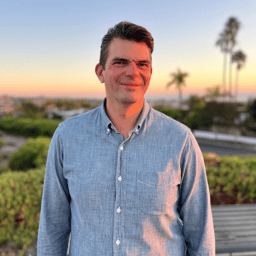If you're in a hurry, I get it. This is a busy time of year.
If you have only 15 more seconds to read this, here is the punchline:
→ Joline Godfrey is a national treasure. She's also a very good friend who has dedicated her life to helping families raise FINANCIALLY FIT KIDS in abundance.
Download or watch my conversation with Joline Godfrey on TREUSSARD TALKS now:
Now… if you have a good cup of coffee and a few minutes for a very important topic (possible “the” topic), I hope you’ll keep reading.
A close friend of mine (who often refers to himself as “Plan Man”) often reminds me:
“Man Plans, and G-d Laughs.”
Or in Yiddish, “Der mentsh trakht un G-t lakht.”
Now you know why we’re friends.
(No, my friend is not Chuck D, though that would be pretty great too.)
Anyway, we made it to June…
We’ve had our fair share of bumps, bruises, joy, and heartache along the way.
And as far as the economy and markets are concerned, we are still in deep "wait-and-see" mode.
As I said a month ago, not rushing to conclusions probably commands a premium during the Great Suspension. We have learned little of substance in the last few weeks and thus have more waiting to do.
What's hard about "waiting intentionally" is that you don't know for how long.
And for those of us built with a preference for action, waiting can be taxing.
But being PATIENT is not even remotely the same as being PASSIVE.
I was in risk management at a multi-billion-dollar family office during the Great Financial Crisis. So, of course, this looks to me like a rare opportunity to get a better sense of how you may fare under a range of market scenarios.
But that's all at once:
obvious,
informed by experience,
and, to some degree, self-serving.
Now, here is another bias of mine:
Whenever I find myself confused about the meaning of things and the best course of action in the face with ambiguity (tip of the black hat/white hat to my friend Dave Nadig), I find that the thread can usually be recovered by thinking about kids — my kids, your kids, "the next generation," as the trope goes.
I know I’m not alone in this camp.
When I asked Katie O'Dwyer — who was CFO for Ziff Brothers Investments in 2008 — what she remembers most from the fall of Lehman Brothers, she told me this incredible story about telling her daughter the two of them would have to head to the office late on a Sunday evening, and her daughter responding, "This is the best day of my life!"
If nothing else, this story helps explain why I think about “the kids” when faced with big market moves and big decisions.
“Why focus on whether your kids turn out to be well-balanced adults? Because the moment you do, you realize that whether interest rates spiked by 15 bps last Friday... has arguably no bearing whatsoever on how your kids will experience adulthood. Sanity restored instantly…”
But here is the one thing I keep going back to, almost like a mantra:

This is a long way around the block to encourage you to listen to my conversation with Joline Godfrey.
As I said at the top, Joline has dedicated her life to teaching families how to raise financial fit kids, even with the extra challenges that “abundance” brings to the task.
There is literally no good way to summarize our conversation (I would know… I tried).
But here are some key points:
→ Your kids are ready to talk about money long before you are.
Like 10 years earlier.
→ The secret to putting wealth where it belongs for them is to lean hard into the fact that wealth is multi-dimensional.
You can put money in context by talking about financial, intellectual, social, and human capital, or F.I.S.H., in Joline’s lingo.
(If that fails, ask your kids if Mr Burns is a happy man…)

And if you think this is too “yucky” to take on…
Just realize that your kids have eyes, ears, and all sorts of other senses.
They’re reading the room and they’re reading you.
And if you’re not talking to them, they’re taking in the silence and forming their own mental model of what’s going on around them.
In the worst of cases, they’ll feel like you’re gaslighting them.
That’s a fast path to losing their trust for the long run.
(As an aside, a friend told me this week about a conversation he had with one of his kids. He picked the topic that was probably the most loaded in their family and he committed to just lean in until the conversation was truly “complete.” I am convinced this was the most meaningful conversation they’d had in a long time. Turns out bravery goes a long way.)
Anyway, as I said…
No good way to summarize this important conversation.
And there is NO clean finish line when it comes to this conversation.
There is only:
→ starting
→ making progress
→ messing up
→ committing to doing better
→ and you know… picking up where you left off.
But if you’re looking for a starting place, please listen to my conversation with Joline now.
If you found this conversation about raising financially fit kids valuable, I encourage you to share it with other parents in your circle who might benefit from these insights. Together, we can help the next generation develop a healthier relationship with wealth.
Disclaimer: All content here, including but not limited to charts and other media, is for educational purposes only and does not constitute financial advice. Treussard Capital Management LLC is a registered investment adviser. All investments involve risk and loss of principal is possible.
Full disclaimers: https://www.treussard.com/disclosures-and-disclaimers.






